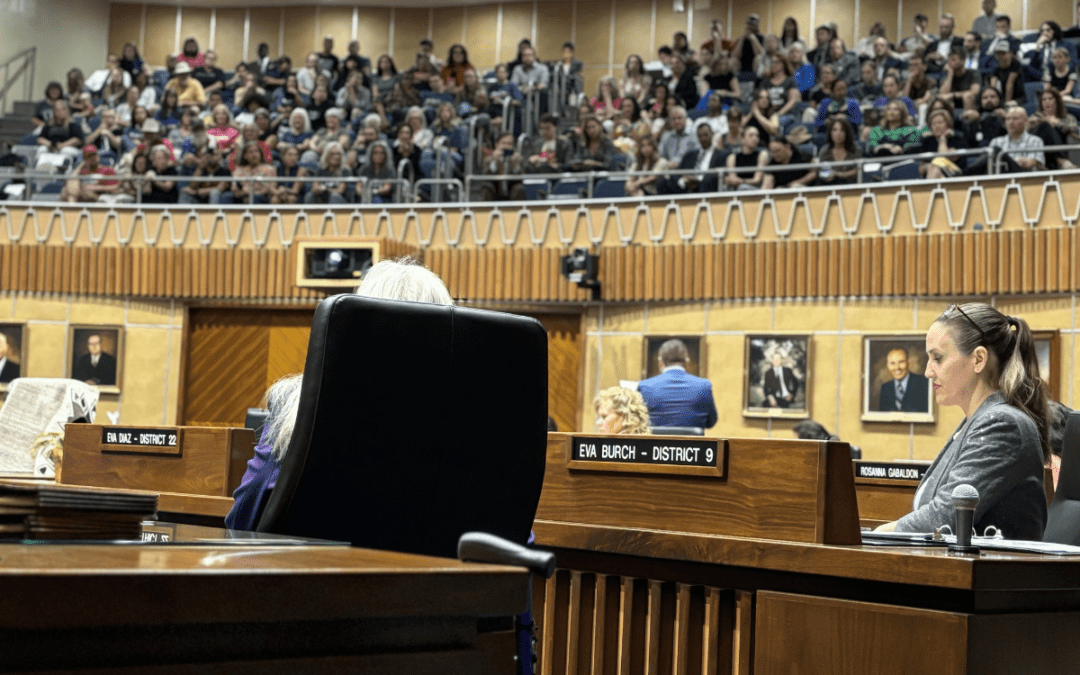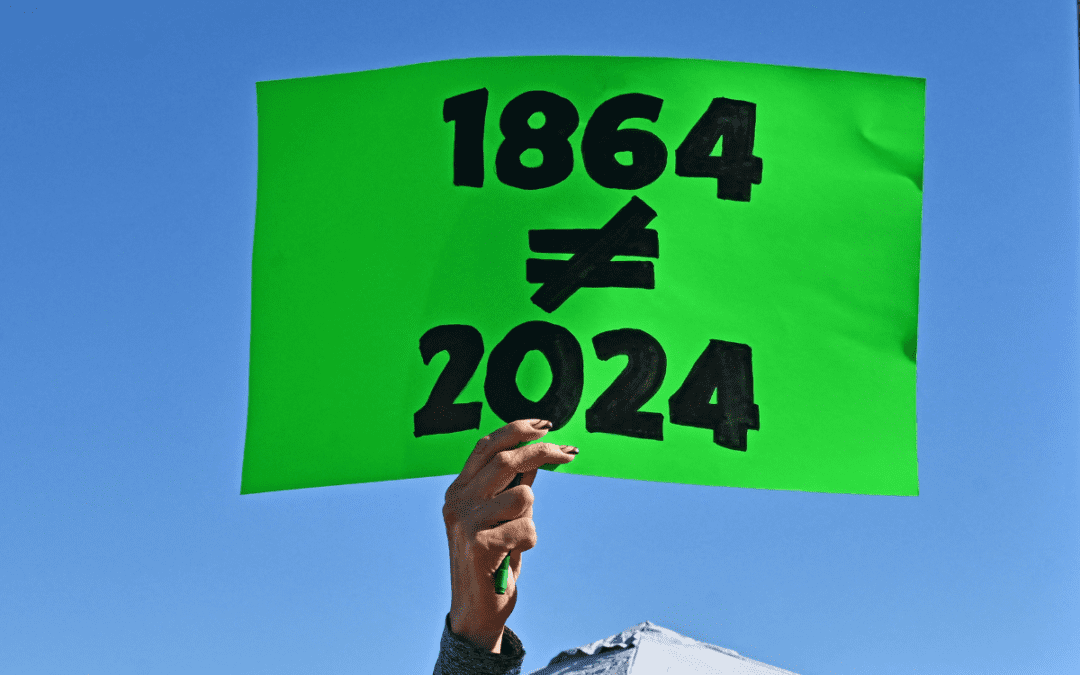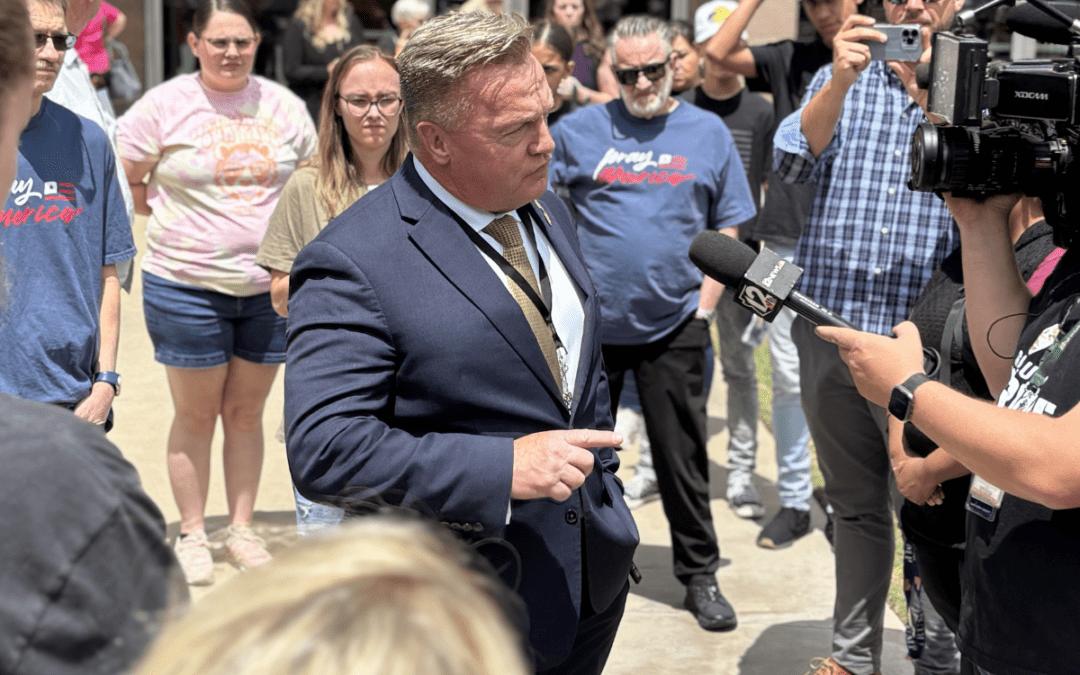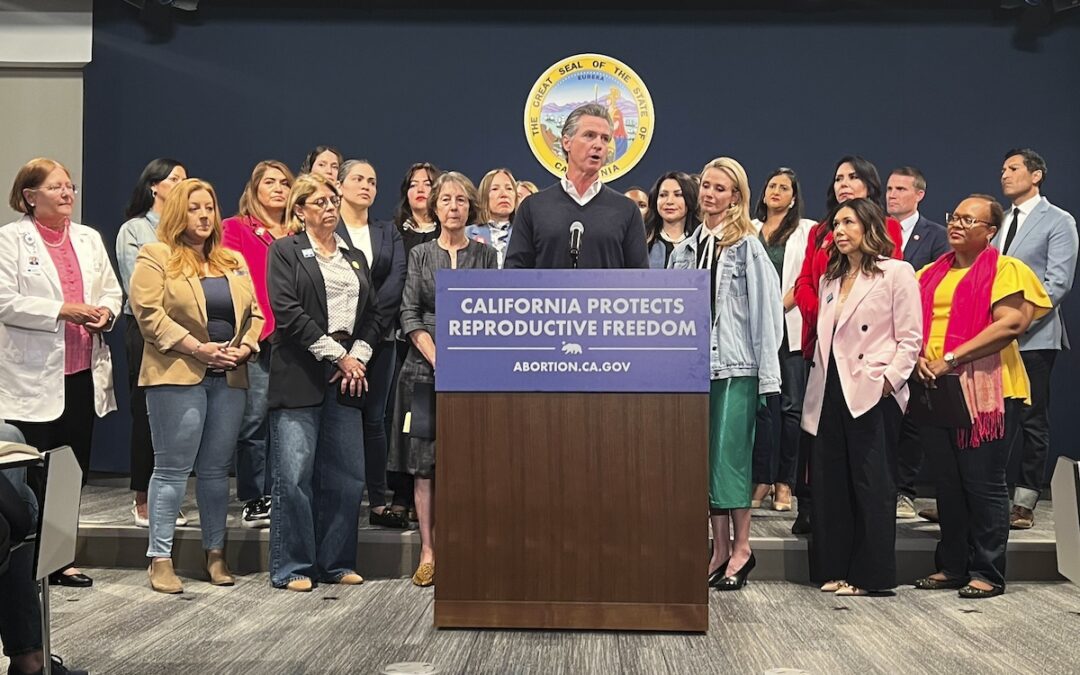
Graphic via Boris Zhitkov, Getty Images
As part of our efforts to help voters feel informed as the November election approaches, we’re creating an overview of local races throughout the state.
All three Republicans running for the state legislature in Arizona’s Sixth Legislative District opted to skip the Clean Elections debate held on Monday, leaving the two Democratic candidates and one Independent to speak without interruption when asked about their plans for the district.
The three in attendance—Coconino County Board of Supervisor member Art Babbott, Flagstaff Mayor Coral Evans, and Felicia French, a retired U.S. Army Colonel and registered nurse—discussed topics ranging from voting rights to climate change. While French is running to fill a seat in the state Senate, Babbott and Evans seek to fill the two seats available in the state House of Representatives.
Rep. Walt Blackman (R-Snowflake), who is running for reelection, and fellow Republicans Wendy Rogers and Brenda Barton, declined an invitation to attend the debate.
Voting Rights
Babbott came out in support of a recent ruling by a federal judge that extended Arizona’s voter registration from Oct. 5 to Oct. 23. The decision, which was opposed by state Republicans like Gov. Doug Ducey and Arizona Attorney General Mark Brnovich, made voting more accessible, according to Babbott. Babbott said that while the ruling was meant to specifically address voting during the COVID-19 pandemic, he hopes it will pave the path to allow voters to register all the way up until Election Day.
Evans was similarly enthusiastic about the rule change. “Access to voting is something that’s absolutely critical,” Evans said. “I think we should allow same-day voter registration.”
As a mayor of one of Arizona’s largest cities, Evans said one of the struggles she faced was state-level restrictions relating to elections that make it difficult for local leaders to track campaign finance in municipal elections.
“Voting is the cornerstone of our democracy,” said French, who also came out in support of the voter registration deadline extension. “It’s a fundamental right that I fought to protect.” French included increasing the number of ballot drop-off locations and making Election Day a holiday as other reforms that could provide residents an opportunity to exercise their right to vote.
Local Control
The amount of authority local governments have become a matter of controversy this year when mayors like Evans were blocked by state leaders from enacting public health guidelines in order to slow the spread of COVID-19 in their communities. Arizona became a hotspot for the coronavirus over the summer. It was only when Gov. Ducey relented and allowed local leaders to enact health safety rules that coronavirus cases in Arizona decreased by 75%.
“Our representatives at the state have never been servant leaders,” Evans. “They have continuously stripped away local control—and they’ve even gone so far as to make sure that communities would be punished if they had an idea that was out-of-step.”
Among some of the restrictions on the books, Evans listed prohibitions surrounding tax collection, short-term rental laws, and single-use plastics as examples of state overreach. She said that one of the first steps in bringing back local control would be to repeal SB1487, a law that allows members of the legislature to sue municipalities at-will for perceived violations of the Arizona Constitution.
While Babbott didn’t specifically cite SB1487, he did agree that a number of factors have contributed to state overreach in local matters. “There are no easy answers with local control,” said Babbott. “There is tension between having a patchwork of laws, and having consistency.”
French compared the battle of local control between cities and states to that of federal overreach in state matters. “We need to remember that these local people were elected by the people,” said French. “They’re exercising the will of the people through the election process.”
Climate Change
When asked about climate change, Evans brought up the creation of Flagstaff’s Climate Action and Adaptation Plan. The plan outlines pathways for the city to accomplish goals such as an 80% reduction in greenhouse gas emissions by 2050, and a restructuring of city finances to prioritize climate adaption initiatives.
“We need to understand first, how to respond to the current changes in our climate, and how to make sure that we can move forward in a way that’s successful,” said Evans. “The state of Arizona needs the same such plan.”
Babbott, who has worked on reducing wildfires and increasing access to water in his role as county supervisor, said that water distribution and healthy forests are key to improving Arizona’s climate. He added that local control also plas a part in water management, as different watersheds throughout the street have varying needs that are best addressed by local communities.
“One of the most important things we can do—and is being done—is connecting the watersheds that serve the southern part of the state to the forest health that is in the northern part of the state,” said Babbott. “They are intimately connected.”
French agreed, adding that addressing climate change will look different in different parts of the state. French, who hiked the 800-mile Arizona Trail, saw the state’s vastly diverse environments along the trail, which spans from the US-Mexico border to The Arizona-Utah border.
While on the trail, French said she saw firsthand low water levels due to drought, wasted energy from dilapidated power lines, and the toxic fallout from abandoned mines that were allowed to seep into the land.
Continue Reading: The Copper Courier Voter Guide: Arizona’s Sixth Legislative District
Editor’s note: a previous version of the story misspelled Art Babbott’s name. We regret the error.
Politics

Democrats successfully force vote on repealing 1864 abortion ban, passes House
The Arizona legislature moved forward two bills Wednesday that would repeal the state’s 1864 abortion ban. A bill to repeal the ban has been...

State Official: 1864 abortion ban gives Arizona ‘black eye’
Arizona’s role at the forefront of the climate crisis, defending democratic elections, and protecting reproductive rights has caught the attention...
Local News

Arizona Sens. Anthony Kern, Jake Hoffman, indicted for fake election scheme
Eighteen individuals involved in a conspiracy to overturn Arizona’s election results in 2020 were indicted by a grand jury Wednesday and charged...

Gov. Gavin Newsom wants to let Arizona doctors provide abortions in California
California law generally allows abortion up to the point of fetal viability, which is around 24 weeks. SACRAMENTO, Calif. (AP) — Arizona doctors...





